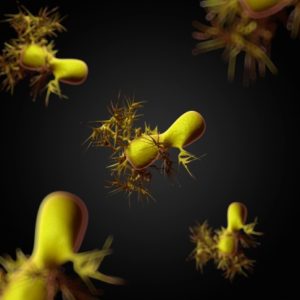Creutzfeldt-Jakob Disease (CJD) is a fatal, rare neurological disease caused by infectious prions, or abnormally folded proteins. Sporadic CJD accounts for 85-95% of all CJD cases with an estimated yearly incidence of about one case per million; 5-15% of CJD cases are inherited as mutations in a prion protein gene. In 1996, a variant form of CJD (vCJD, also known as “mad cow disease”) associated with beef products was identified in the United Kingdom; incidence peaked at 29 cases in 1999, and the last two reported deaths occurred in 2013 and 2016. Although hypothetical transfusion-transmission of CJD could occur, no transfusion-transmitted cases have been documented in 76 recipients in the United Kingdom nor 264 recipients in the U.S. who received blood from donors with CJD. Four cases, however, of transfusion-transmission of vCJD are suspected. Based on the current scientific evidence, the FDA has issued new draft guidance for industry to reduce the possible risk for CJD and vCJD. Notable amendments from the 2016 Final Guidance include changes for donor deferrals—human growth hormone (hGH) may be removed from the medication deferrals since cadaveric pituitary-derived hGH has not been available since 1985; likewise, bovine insulin may be removed from the medication deferrals since no case of CJD or vCJD have been identified; donation centers may also remove questions about blood relatives with CJD since almost all cases of CJD are sporadic. Further changes to recommendations include only screening donors for time spent in the U.K., Ireland and France and not all of Europe or US military bases in Europe. Donor history questionnaires must be updated and this draft guidance must be finalized before implementation of these recommendations from the FDA.
Reference:

